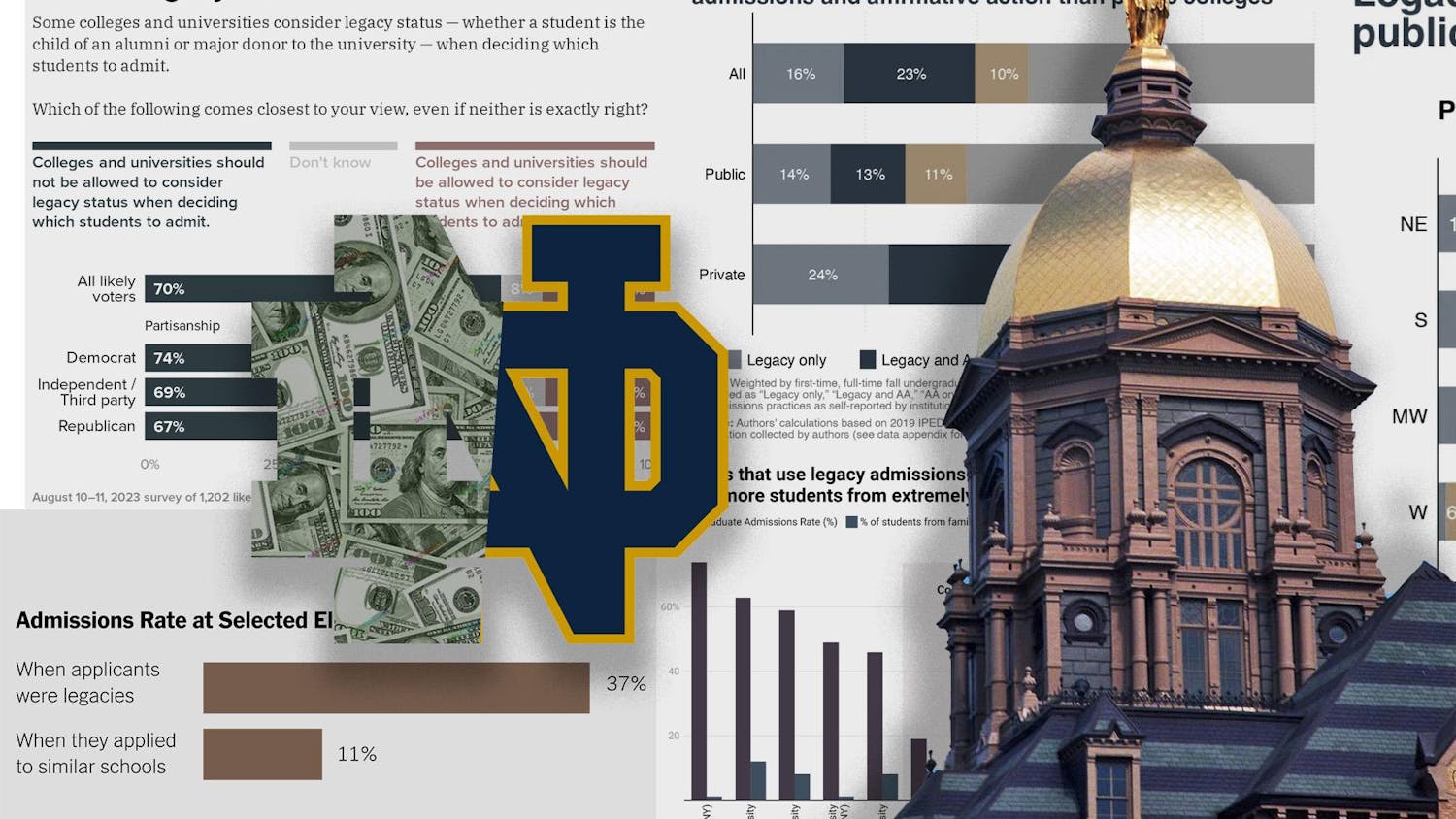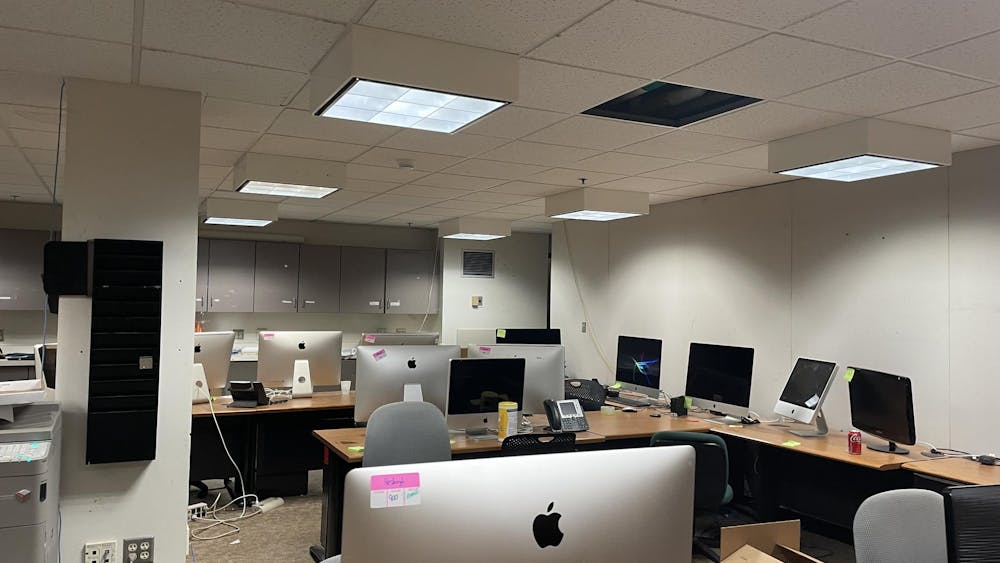As I traversed through the latter half of my Moreau course, answering the weekly reflection prompts and consuming the wide catalog of videos and readings, I once again noticed a trend that has bothered me throughout the entirety of the career selection process. Even though I had always been rather certain of my path, I supposed this class’s content — some of which is (allegedly) dedicated to discernment — could not possibly cause me any harm.
Instead, what I discovered was rather disturbing, and it went seemingly unseen both in the provided course questions and the recommended class conversations. This issue is not exclusive to the class, but it is present in every discussion dedicated to pondering one’s future in the workforce. Be it an official academic resource, a dialogue with a family member or one of the infinite YouTube videos that are quick to capitalize on the anxieties of a kid being thrown into the real world, it seems the fundamental goal of having a job has been meticulously misconstrued in our society.
Choosing a career has been framed as a method of self-realization when this is not necessarily the case. All the contrary, this is a dangerous and disingenuous supposition that is perpetuated by a culture that fetishizes labor.
We are being misled when considering an industry. Our potential labor in the distant and the abstract is purposefully being depicted as a cure-all that is, in essence, not inherent to human nature. To work is not instinctual; it is not imprinted into human DNA. But as one talks more and more about their preferential job, others tell the prospective worker to tie in their life’s mission or ultimate ambitions to their work. They propose to not merely see working as a means to an end, but rather that work is the end itself. This line of thought is not simply illogical, but actively deceiving. Labor has been glamorized: It is promoted and marketed far beyond what it realistically is.
What is the purpose of working? To what end does one attain employment?
Money, primarily.
Though there are plenty of exceptions to this, financial gain does tend to be the main purpose behind a job as a concept under modern capitalistic civilizations. And in such contexts, the first characteristic of a “good job” is that it makes a lot of money, first and foremost, followed by all of the other personal comforts or optional moralities. Here, it does not matter how joyous, charitable or fulfilling a job is. If no proper income is acquired through it, it is usually unsustainable. To make up for this cruel fact, such societies have twisted the very conception of a job.
Thus, the issue at hand is that a constrained view of a “good job” is being portrayed as not only a requirement but the source of a “good life.” Yet, in the grand scheme of things, money and modern labor are rather new concepts. They are inventions that have been adopted as a societal convention out of convenience. They are unnatural. They are commonplace in our society but, as they stand, are not a necessity or inherent quality of our existence. A human’s nature does not rely on nor is intrinsically connected to labor. As such, one will never achieve a genuine eudaimonia through it alone.
It is noteworthy to mention that this is not to claim that a person cannot be helped during their discernment processes, but to exclusively ensnare the identity and value of a person by an activity meant to generate income is a great violation of their innate humanity. Humans are not born to find the most effective way to find joy in their vocation. A vocation should serve the person, not the other way around.
Worst of all, it is as if we have been set up to inadvertently deceive one another in the pursuit of mutual encouragement, failing to critically consider the reasons behind our actions. Our environment lends itself to our willing submission. It is easier to excuse the flow than to question it.
If we are not careful in our depiction of labor, we may walk ourselves down a path that leads only to either life of perpetual unawareness or eventual despair. When one gambles it all on achieving self-realization in their work eventually they abandon all required introspection outside of labor and minimize their personhood to their relation to their work. Is that what we are? Creatures of making and spending money? Are we brought into this world to slave away our days under a vague promise that may never come around? To think this way is to allow inaction to dictate our every move; there is nothing sadder than that.
Most importantly, we must avoid spreading lies regarding selecting a career. It is not sufficient to recognize that there is more to life than to work, but we must act on it every single day. We must never forget the fundamental truth that one does not live to work: One works to live.
Carlos A. Basurto is a first-year at Notre Dame ready to delve into his philosophy major with the hopes of adding the burden of a Computer Science major on top of that. When not busy you can find him consuming yet another 3+ hour-long analysis video of a show he has yet to watch or masochistically completing every achievement from a variety of video games. Now with the power to channel his least insane ideas, feel free to talk about them via email at cbasurto@nd.edu (he is, tragically, very fond of speaking further about anything at all).
Carlos A. Basurto is a senior at Notre Dame studying philosophy, computer science and German. He's president of the video game club and will convince you to join, regardless of your degree of interest. When not busy, you can find him consuming yet another 3-hour-long video analysis of media he has not consumed while masochistically completing every achievement from a variety of video games. Now, with the power to channel his least insane ideas, feel free to talk about them further at cbasurto@nd.edu.









